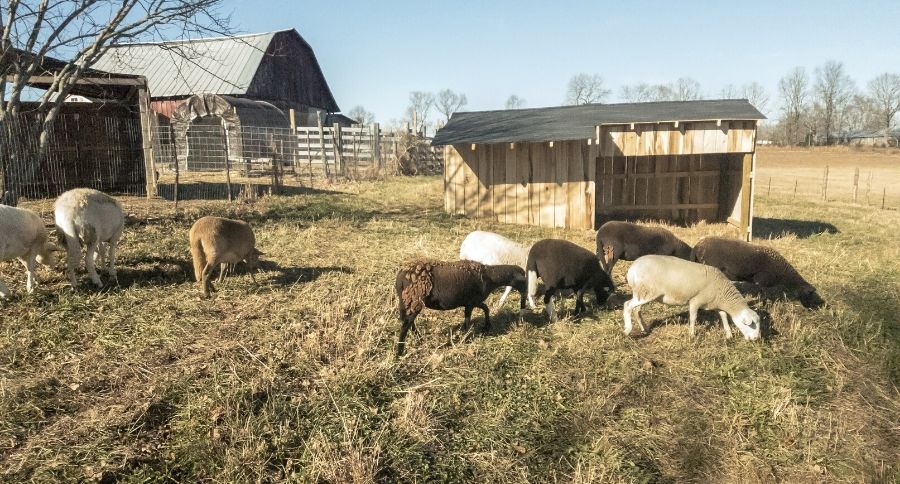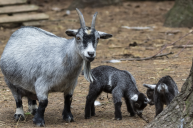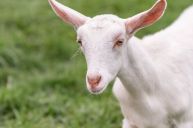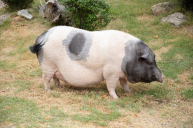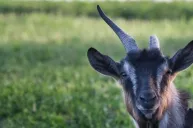Katahdin sheep are considered "hair sheep" and there's no shearing required. According to Modern Farmer, these sheep are better for brush control and meat production.
Some sheep breeds don't need shearing! Hair sheep are more disease-resistant than wool sheep, and their meat is considered of superior quality. The Katahdin sheep are used for meat production.
They are precious!
Origin
https://www.instagram.com/p/B78uekgg2nN/
According to Hobby Farms, in 1957, noted sheepman Michael Piel of Maine imported a group of "African Hair Sheep" from St. Croix to his farm in north-central Maine.
"He hoped to develop a hardy, productive, wool-less breed of sheep, and at this, he was uncommonly successful. He crossed his original imports with each other and an array of wool breeds, including Tunis, Southdowns, Hampshires and Suffolks, later adding Wiltshire Horn hair sheep and additional wool-breed genetics, then selecting for hair coat, meat-type conformation, high fertility, and flocking instinct."
In the early 1970s, when he felt he'd come close to achieving his goal, he selected 120 ewes from his large flock and named them Katahdins after Mt. Katahdin, the highest mountain peak in Maine.
Breed characteristics
https://www.instagram.com/p/B7648olFOZS/
Roy's Farm shares some of the characteristics of these docile sheep.
- Since they're docile they're easy to handle!
- They are medium to large animals, and they were the first in the United States to reach sheep industry standards of carcass quality.
- Given they are are "hair sheep" as we learned they don't need to be sheared. They naturally shed their winter coat.
- Their hair can come in any color, as the emphasis of the breed is on production rather than appearance.
- Katahdins are medium-sized sheep; ewes weigh 125-185 pounds, rams weigh 180-250 pounds.
What are they used for?
https://www.instagram.com/p/B74sG6PgHmy/
Interesting facts about these sheep
These hair sheep breeds are meat breeds, and Hobby Farms tells us they grow wooly winter coats.
"During the mid- to late-20th century, wise sheep developers crossed true hair sheep with wool sheep to create larger, meatier, faster-maturing, shedding breeds like Dorpers and Katahdins. These sheep grow woolly winter coats but shed them by June or July."
The Katahdin breed is ideal for pasture lambing and grass management systems. The Katahdin sheep have demonstrated wide adaptability and can tolerate heat and humidity well.
The breed is also significantly tolerant of internal and external parasites. Their parasite resistance is a huge benefit! They are known to be low maintenance and have an exceptional mothering ability.
Are you familiar with this sheep breed? Please leave us a comment below!
